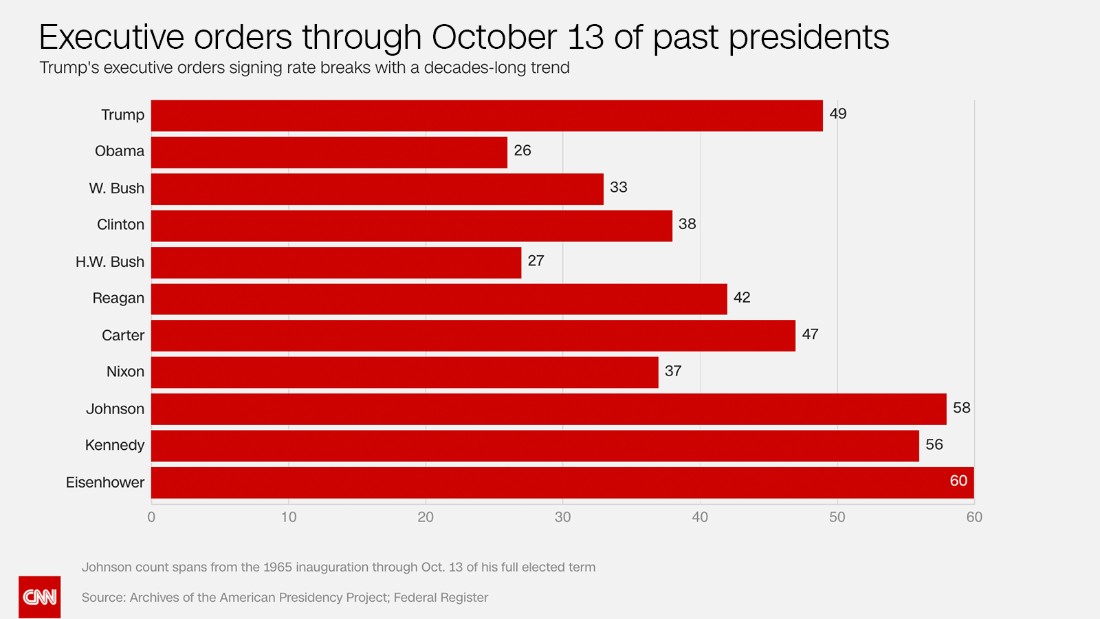Presidential Pardons In Trump's Second Term: Legal And Ethical Considerations

Table of Contents
The Legal Framework of Presidential Pardons
The legal basis for presidential pardons rests firmly on Article II, Section 2 of the US Constitution. This clause grants the president the power "to grant Reprieves and Pardons for Offenses against the United States, except in Cases of Impeachment." This seemingly straightforward grant of power, however, has been the subject of considerable legal interpretation over the years.
- Article II of the US Constitution: This article provides the foundational legal authority for the president's pardon power. It’s a broad grant, allowing for clemency in federal crimes.
- Limitations on Pardons: While extensive, the pardon power is not absolute. It cannot be used in cases of impeachment, and its application is limited to federal offenses. State-level crimes fall outside the president's purview.
- Historical Evolution: The interpretation and application of the pardon power have varied considerably throughout US history. Some presidents have exercised it sparingly, while others have employed it more liberally, leading to diverse legal precedents and ongoing debates.
- Examples of Past Pardons: Historical examples, such as Gerald Ford's pardon of Richard Nixon, illustrate the potential for both highly controversial and relatively uncontroversial uses of the pardon power, highlighting the diverse interpretations and contexts surrounding its application. These examples provide valuable context for understanding the legal and political implications of presidential pardons.
Ethical Considerations and Potential Abuse of the Pardon Power
The ethical considerations surrounding presidential pardons are complex and often intertwined with political motivations. The potential for abuse is a significant concern, particularly when pardons appear politically motivated or granted to shield individuals from accountability.
- Political Pardons and Obstruction of Justice: Instances where pardons seem designed to protect allies from legal consequences raise serious ethical questions and may even suggest obstruction of justice. The line between legitimate clemency and politically motivated pardons can be blurry, leading to intense public scrutiny.
- Rewarding Loyalty and Silencing Critics: Granting pardons to reward loyalty or silence critics erodes public trust and raises concerns about fairness and impartiality within the justice system. Such actions undermine the principles of equal application of the law.
- Due Process and Fairness: The ethical use of the pardon power requires careful consideration of due process and fairness. Pardons should not be used to circumvent the legal process or to provide preferential treatment to certain individuals.
- Partisan Politics: The perception and acceptance of presidential pardons are heavily influenced by partisan politics. Pardons granted by one party are often viewed differently by the opposing party, leading to further polarization and debate.
Hypothetical Scenarios in a Second Trump Term
Speculating on potential pardons in a hypothetical second Trump term requires considering individuals facing federal charges or investigations who might have been considered for clemency. The political ramifications of such pardons would have been significant, generating intense public debate and potentially impacting future elections.
- Potential Recipients: Identifying individuals who might have been considered for pardons requires analyzing individuals close to Trump who faced legal challenges, including those investigated or convicted of federal crimes.
- Political Fallout: The potential political fallout from any controversial pardons would have been substantial. Public opinion, media scrutiny, and potential legal challenges would have been major factors.
- Legal Challenges: Controversial pardons would have faced legal challenges questioning their legality and ethical implications, potentially leading to prolonged legal battles.
Public Opinion and the Role of Media
Public perception of presidential pardons is profoundly shaped by media coverage and political discourse. Transparency and accountability in the pardon process are essential for maintaining public trust.
- Media's Influence: The media plays a pivotal role in shaping public opinion, framing the debate around presidential pardons, and influencing public perception of the justice system's fairness.
- Transparency and Accountability: Openness and accountability in the pardon process are crucial for building public trust. Detailed explanations of the rationale behind pardons can help mitigate concerns about political motivations.
- Framing the Debate: Media narratives significantly influence how the public understands and reacts to presidential pardons. Different outlets might frame the same pardon differently, reflecting differing political viewpoints.
Comparative Analysis of Presidential Pardon Practices
Comparing US presidential pardon practices with those of other countries offers valuable insights into different models and best practices. This comparative analysis highlights the unique aspects of the US system and potential areas for improvement.
- International Comparisons: Examining pardon practices in other countries, such as the UK or Canada, reveals different approaches to clemency, including their legal frameworks and processes.
- Different Models: Comparing various models for granting pardons allows for the identification of advantages and disadvantages of different approaches to clemency, highlighting potential improvements in the US system.
- Best Practices: Analyzing best practices in other countries can inform recommendations for improving transparency, fairness, and accountability in the US presidential pardon process.
Conclusion
The power of presidential pardons is a potent tool, capable of both justice and injustice. While legally sound within its constitutional boundaries, its ethical implications are complex and frequently debated. A hypothetical second Trump term would likely have seen further scrutiny of this power, potentially exacerbating the already existing controversies surrounding its usage. Understanding the legal framework and ethical considerations surrounding presidential pardons is crucial for maintaining a just and transparent system. The impact of media coverage and public opinion cannot be overstated in shaping perceptions and influencing the ongoing debate.
Call to Action: Continue the conversation on presidential pardons and their impact on the American justice system. Share your thoughts and engage in informed discussions about the limitations and responsibilities associated with this significant presidential power. Learn more about the history of presidential pardons and their evolving role in American politics. Understanding the intricacies of presidential pardons—their legal framework, ethical dimensions, and the vital role of public discourse—is essential for a well-informed citizenry.

Featured Posts
-
 Get The Latest On Athletic Club De Bilbao From Vavel Usa
May 16, 2025
Get The Latest On Athletic Club De Bilbao From Vavel Usa
May 16, 2025 -
 Extended Creditor Protection Granted To Hudsons Bay Company Until July 31st
May 16, 2025
Extended Creditor Protection Granted To Hudsons Bay Company Until July 31st
May 16, 2025 -
 Rediscovering Ps 1 Gaming On The Steam Deck Verified Titles
May 16, 2025
Rediscovering Ps 1 Gaming On The Steam Deck Verified Titles
May 16, 2025 -
 The Countrys Evolving Business Landscape Hotspots And Opportunities
May 16, 2025
The Countrys Evolving Business Landscape Hotspots And Opportunities
May 16, 2025 -
 Vont Weekend 2025 A Photographic Journey April 4 6 107 1 Kiss Fm
May 16, 2025
Vont Weekend 2025 A Photographic Journey April 4 6 107 1 Kiss Fm
May 16, 2025
